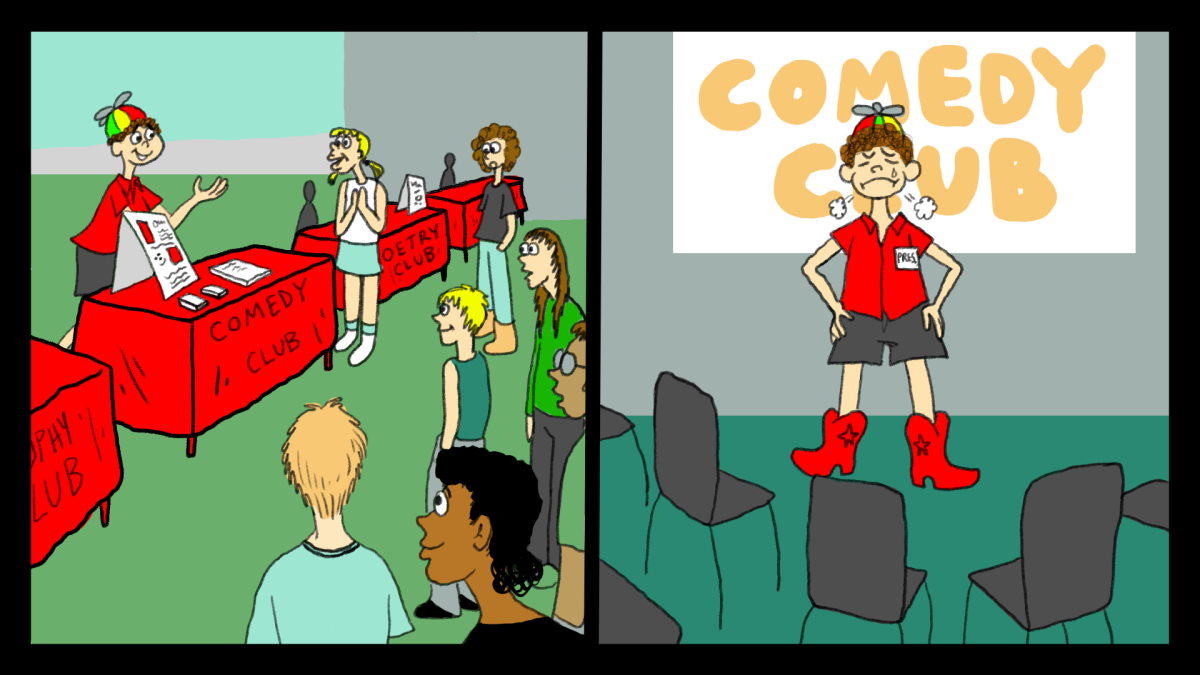On Friday, Sept. 29th, the McKimmon Center opened its doors and opportunities to a new chapter in my life — gaining professional work experience at a company in the United States.
At least that’s what I thought.
It turns out, only 17 of the 124 companies that attended NC State’s career and internship fair are willing to hire international students, and I’m from Austria.
Cristina Toledano Rodina, a fourth-year from Spain studying business, disagreed with the companies’ practices.
“It’s just not fair,” Rodina said. “I’ve just come back from the career fair, and I got rejected a bunch of times because of my status as an international student.”
Most companies require you to disclose information about whether or not you need a sponsorship now or in the future. While the majority of international students are eligible to work in the United States for a certain period of time, at some point in the future a company might need to sponsor you. There are companies that will refrain from hiring you for this fact alone, without giving your qualifications and educational background any further consideration.
It’s important to note that most employers don’t act out of ill will, but simply don’t know how to manage visa-related issues.
“The problem is that a lot of the representatives of companies at the career fair are not qualified to answer visa-related questions,” said Giovanni Consiglieri, an Italian undergraduate student studying business.
Most companies believe employing international students is costly, both in time and in finances. In reality, there are no additional fees or complicated paperwork required to legally hire a non-U.S.-citizen student worker as long as they adhere to their visa regulations.
The F-1 visa is designed for full-time international students who are enrolled at an academic institution in the United States.
They are eligible to work in the U.S. and can apply for a program called Curricular Practical Training as part of their curriculum or a co-operative education program during which they remain enrolled at university for the duration of their work placement.
Similarly, J-1 students are classified as exchange visitors and take part in a program that allows them to study in the U.S. for a specific amount of time.
They are eligible for a type of internship called Academic Training. This allows them to work for a maximum of 18 months if they are degree-seeking students and 36 months if they are PhD students. Non-degree seeking students are authorized to work in the U.S. for the amount of time they were issued a J-1 document.
At least one reason for companies’ reluctance to employ international students seems to be a lack of information on the different visa types and the rules and regulations they involve. While working through the various visa requirements can be a tedious and time-consuming process, hiring managers’ primary motive for favoring U.S. citizens in the application process is a different one.
Elizabeth A. James, director of the NC State Office of International Services, said a lot of the companies that attend NC State’s career and internship fairs think about the long-term in their hiring decisions. They frequently offer former interns fixed positions as they are already familiar with the company’s goals and structure.
While it is understandable that employers like to plan ahead for the future, it’s impossible to predict whether or not an employee will remain in the company forever.
A vast majority of Generation-Z workers call themselves “job hoppers,” given they’re not inclined to stay in the same firm for more than five years. Employers might as well take on non-U.S. citizens because young people, regardless of their nationality, are likely to leave their positions if they are no longer happy in their jobs or for other reasons.
How, then, can international students boost their chances with American hiring managers?
Rodina said international students could provide companies with a global perspective that Americans might not have as they are equally qualified and oftentimes bi-or polylingual.
“You just need to be able to sell yourself to potential employers at the career fair, prepare a convincing elevator pitch and don’t let the fact that you’re an exchange student prevent you from putting yourself out there,” Rodina said.
Heather Dellinger, co-op coordinator at NC State, said students should also understand the requirements and restrictions regarding their specific visas.
“Be aware of what you’re legally able to do, the steps and paperwork you have to do and familiarize yourself with the process to answer inquiries of employers regarding your visa status,” Dellinger said.
If you have any questions about your visa, you can visit the OIS website for more information.
Additionally, you should not only keep in mind what you say to firms but also how you say it.
Career advisors can help you approach companies and communicate your skillset and the value you’d bring to their firm in a persuasive manner. You can find more resources on the Career Development Center homepage including resume and interview workshops, universal services and coachings.
Even if you follow these steps, you will be confronted with the question, “Do you now, or will you ever need sponsorship?” one day. So be prepared to tell employers why they should hire you, not in spite of your status as an international student, but because of it.







